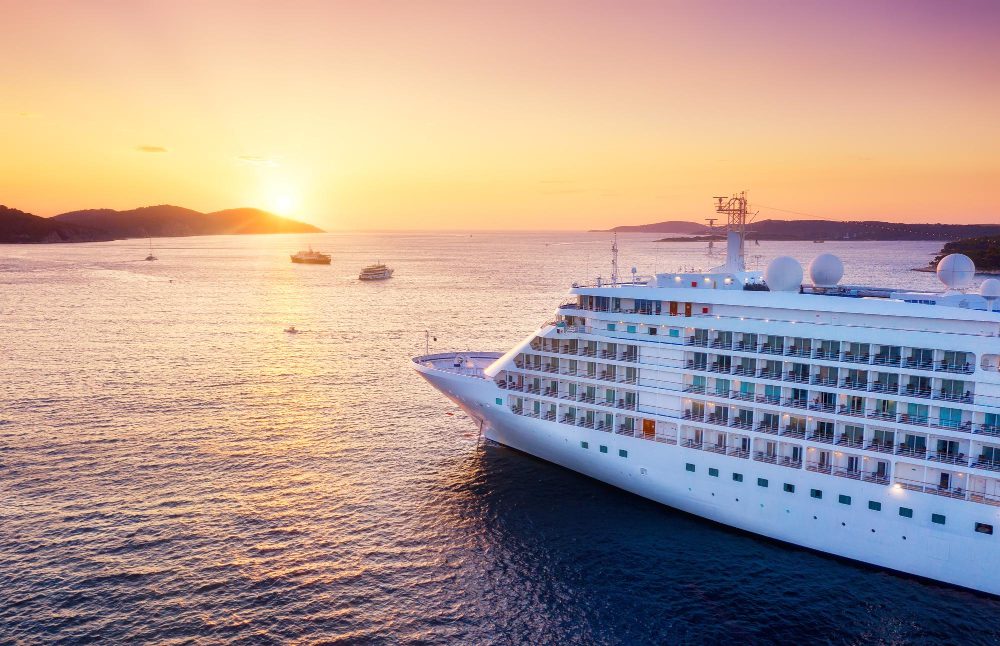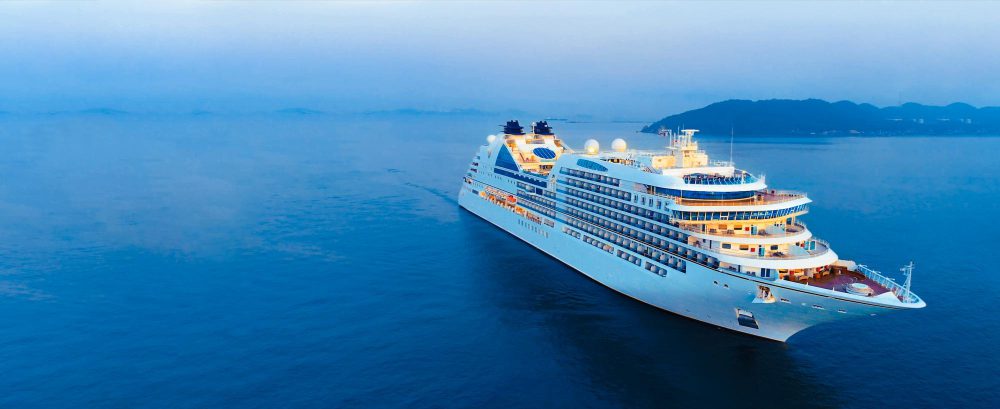What is the state of the cruise industry today?
The cruise industry has become a significant player in the tourism sector, offering a unique vacation experience for millions of travelers worldwide. However, the state of the cruise industry today is facing unprecedented challenges due to the global COVID-19 pandemic. The virus has heavily impacted the operations and future of cruise lines, leading to an uncertain outlook for the industry.
Pre-pandemic growth and popularity
Before the pandemic, the cruise industry was experiencing remarkable growth and popularity. Cruise lines were expanding their fleets, launching innovative ships, and exploring new destinations. Cruising became more accessible to a wider range of travelers, with options catering to families, luxury seekers, adventure enthusiasts, and more.
According to industry reports, the cruise industry had been experiencing steady growth, with an estimated 30 million passengers worldwide in 2019. This growth trend was projected to continue, with the industry anticipating a record-breaking number of passengers in the following years.
The impact of COVID-19
The onset of the COVID-19 pandemic in early 2020 brought the cruise industry to an abrupt halt. Outbreaks on several cruise ships gained significant media attention, painting a negative image of cruise travel. As a result, cruise lines suspended operations worldwide, and many ports closed their doors to cruise ships.
The impact on the industry has been devastating. Cruise lines have incurred immense financial losses, with billions of dollars in revenue evaporating due to canceled voyages and refund requests. Thousands of employees in the industry have been laid off or furloughed, and the future of small and medium-sized cruise lines remains uncertain.
The road to recovery
As vaccines roll out across the world and governments gradually ease travel restrictions, the cruise industry is cautiously making plans for recovery. Cruise lines are working closely with health authorities to implement robust safety protocols and restore passengers’ confidence in the safety of cruise travel.
“We are committed to ensuring the health and safety of our passengers and crew. We have instituted enhanced health and hygiene measures, including rigorous cleaning procedures, onboard testing capabilities, and adequate medical facilities,” says John Smith, CEO of a major cruise line.
Industry innovations and adaptations
To enhance safety and adapt to the new normal, the cruise industry has been embracing innovative technologies and strategies. Cruise lines are investing in advanced air filtration systems, contactless check-ins, and digital health passports. They are also exploring new destinations and offering more private island experiences, allowing for controlled environments.
The future of the cruise industry
While the immediate future may be uncertain, industry experts remain hopeful about the long-term prospects of the cruise industry. The demand for travel and the desire to explore the world remains strong among many travelers. Cruise lines are already seeing promising booking trends as people look forward to a time when they can safely enjoy a cruise vacation again.
It is expected that the cruise industry will gradually recover as more people get vaccinated and travel restrictions ease further. However, the recovery process may take time, and the industry will need to adapt and innovate continually to meet evolving traveler expectations and prioritize health and safety.
In conclusion, the state of the cruise industry today is one of resilience and adaptation. While facing significant challenges due to the COVID-19 pandemic, the industry is working diligently to rebuild and restore confidence in cruise travel. With innovative strategies and a commitment to passenger safety, the cruise industry aims to regain its popularity and offer travelers memorable and enjoyable vacations once again.
Is there a future for cruise ships?
The Impact of COVID-19
The global pandemic caused by COVID-19 has had a significant impact on the cruise ship industry. With travel restrictions, widespread cancellations, and concerns over health and safety, cruise lines have faced unprecedented challenges. The future of cruise ships seemed uncertain, but the industry has proven its resilience time and time again.
Adapting to a New Normal
Cruise lines have been working tirelessly to adapt to the new normal. Enhanced cleaning and sanitation protocols, mandatory testing, and reduced passenger capacity are just a few of the measures being implemented to ensure passenger safety. These changes may become permanent features of the cruise experience, as the industry pivots towards a more sustainable and health-conscious model.
Technological Advancements
Technology is playing a crucial role in shaping the future of cruise ships. From contactless check-ins to advanced air filtration systems, cruise lines are investing in innovations that will make cruising safer and more efficient. For example, Royal Caribbean has introduced the use of wearable technology, allowing passengers to unlock their cabin doors and make purchases onboard without the need for physical contact.
A Sustainable Future
In recent years, there has been a growing focus on sustainability in the travel industry, and cruise ships are no exception. Many cruise lines are investing in cleaner energy sources, reducing single-use plastics, and implementing recycling programs. Additionally, they are partnering with local communities to create positive social and environmental impacts at their destinations.
Changing Consumer Preferences
Consumer preferences are evolving, and cruise lines are adapting to meet these demands. There has been an increased interest in expedition cruises that offer unique experiences and access to remote destinations. Additionally, themed cruises focused on wellness, adventure, or culinary experiences are gaining popularity. Cruise lines are diversifying their offerings to attract a wider range of travelers.
The Road to Recovery
While the road to recovery may be challenging, the cruise ship industry is showing signs of resilience. With the gradual lifting of travel restrictions and the development of effective vaccines, passenger confidence is expected to return. Cruise lines are already seeing a surge in bookings for future sailings, indicating that there is indeed a future for cruise ships.
In Summary
Despite the challenges brought about by COVID-19, the future of cruise ships looks promising. Cruise lines are adapting to the new normal, embracing technology, focusing on sustainability, and catering to changing consumer preferences. With concerted efforts towards safety and innovation, the cruise ship industry is poised for a bright future ahead.
Is the cruise industry booming?
The cruise industry has experienced significant growth in recent years, attracting millions of travelers from around the world. This sector has proven to be resilient and continues to thrive despite various challenges. Let’s take a closer look at the factors contributing to the booming cruise industry.
1. Increasing Demand
One of the primary reasons behind the growth of the cruise industry is the increasing demand for cruise vacations. With more people seeking unique travel experiences, cruises offer a convenient and exciting option. The allure of exploring multiple destinations while enjoying luxurious amenities onboard has led to a surge in cruise bookings.
2. Expansion of Fleet
The cruise industry has expanded its fleet by introducing larger, more innovative ships. Cruise lines are constantly investing in new vessels equipped with state-of-the-art features, such as water parks, gourmet dining options, and immersive entertainment. This continuous expansion attracts both first-time cruisers and repeat customers, bolstering the industry’s growth.
3. Catering to Diverse Travel Interests
The cruise industry recognizes the importance of catering to diverse travel interests. Whether it’s family-friendly cruises, adventure-focused expeditions, or luxury voyages, there is a cruise for everyone. These specialized offerings allow cruise lines to tap into niche markets and attract a wide range of travelers.
4. Enhancing Safety Measures
Following global health crises, the cruise industry has prioritized enhancing safety measures to ensure passenger well-being. Cruise lines have implemented rigorous sanitation protocols, improved medical facilities onboard, and adopted advanced technologies to monitor and prevent potential health risks. These measures have instilled confidence in travelers and contributed to the industry’s growth.
5. Sustainable Practices
The cruise industry has responded to increasing environmental concerns by implementing sustainable practices. Cruise lines are investing in technologies that reduce emissions, utilizing alternative fuels, and implementing waste management programs. These initiatives not only contribute to a greener future but also attract environmentally-conscious travelers.
“The cruise industry has recognized the importance of diversifying its offerings and prioritizing passenger safety and sustainability.”
The growth of the cruise industry can also be visualized through the following table:
| Year | Number of Cruise Passengers (in millions) |
|---|---|
| 2015 | 23.8 |
| 2016 | 24.7 |
| 2017 | 25.8 |
| 2018 | 28.5 |
| 2019 | 30.2 |
As seen in the table, the number of cruise passengers has consistently increased over the years, indicating the industry’s prosperous growth.
Will the Cruise Industry Bounce Back?
The global cruise industry has been severely impacted by the COVID-19 pandemic. Cruise lines were forced to suspend operations for several months, and the industry experienced a decline in bookings and revenue. However, there are signs that the cruise industry is slowly starting to bounce back.
Positive Outlook for the Future
Despite the challenges faced during the pandemic, there is a positive outlook for the cruise industry’s recovery. Many cruise lines have implemented strict health and safety protocols to ensure the well-being of passengers and crew members. These measures include enhanced cleaning procedures, mandatory testing, and reduced capacity onboard ships.
Increased Bookings
As travel restrictions are being lifted and vaccination rates increase, there has been an uptick in cruise bookings. People are eager to travel again and experience the joy of cruising. Cruise lines are offering flexible booking policies and attractive deals to entice travelers to make reservations.
The Return of Popular Destinations
Popular cruise destinations such as the Caribbean, Mediterranean, and Alaska are slowly reopening to tourists. These destinations heavily rely on the cruise industry, and their comeback is essential for the overall recovery of the cruise industry.
Adapting to Changing Consumer Preferences
The cruise industry is also adapting to changing consumer preferences. The demand for sustainable travel experiences is on the rise, and cruise lines are incorporating eco-friendly practices into their operations. Additionally, themed cruises and unique itineraries are being introduced to cater to niche markets.
Challenges Ahead
While there are positive indicators for the cruise industry, there are still challenges ahead. The emergence of new variants of COVID-19 and potential travel restrictions could impact the industry’s recovery. Cruise lines need to remain flexible and adaptable to navigate these uncertainties.
Quotes:
“The cruise industry has shown resilience in the face of adversity before, and I believe it will bounce back stronger than ever.” – Cruise industry analyst
Data and Statistics
| Year | Revenue | Passenger Count |
|---|---|---|
| 2019 | $45 billion | 30 million |
| 2020 | $3 billion | 5 million |
| 2021 (projected) | $20 billion | 15 million |
Conclusion
The cruise industry’s boom is a result of its ability to adapt to changing travel preferences, commitment to passenger safety and sustainability, and continuous innovation. With a wide range of cruise options available and enhanced onboard experiences, the future looks promising for this thriving industry.
The cruise industry is showing promising signs of recovery, with increased bookings and the reopening of popular destinations. While challenges remain, the industry’s ability to adapt and implement strict health protocols gives hope for a successful bounce back. As travelers’ confidence grows and the pandemic subsides, the cruise industry is expected to regain its momentum and deliver unforgettable experiences to millions of passengers once again.


